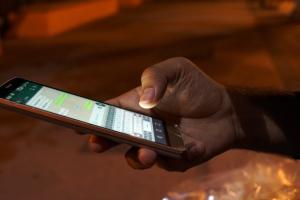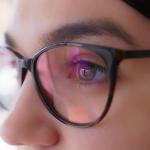
Who Are GenZennials?
Why are they at risk?
GenZennials is a name given to the group made up of Generation Z and young millennials. Their ages range from 18-35. They are unique in human history because they have never known life without the internet which also makes them unique in certain problem areas, as well, including poor mental health and sleep habits affected by use of electronic devices. Recent research has been done, offering hope for overcoming anxiety due to lack of sleep, particularly for at-risk GenZennials.
The JMIR Research Quoted
Why are GenZennials at risk?
JMIR Formative Research reports: “Gen Z and millennials both experience high levels of mental health and sleep concerns. Over half (57%) of Gen Z, and nearly half of millennials (46%) report experiencing depressive symptoms and anxiety, and these generations have the highest average self-reported stress compared to other generations. Gen Z and millennials’ average stress on a 10-point scale is 5.3 and 5.7, respectively, while other generations range from 3.3 to 5.1. In addition to mental health concerns, nearly 40% of Gen Z and millennials rate their sleep as “fair” or “poor” and more than two-thirds of Gen Z and millennials use a sleep aid to help them fall asleep or stay asleep. Along with poor mental health, GenZennials also report sleep disturbance. One of the major reasons GenZennials lose sleep is due to spending more time on their phones, especially on social media. In fact, Gen Z report losing sleep sometimes (32%) or often (48%) due to social media use” (https://formative.jmir.org/2023/1/e50239).
My Experience With Anxiety Due to Lack of Sleep
I teach high school and junior college students, and have often suspected that student fatigue and poor academic performance due to lack of sleep is directly connected to late-night/early-morning internet use. Actually, it seems like a no-brainer considering I have fallen into that chasm myself.
When my husband used to work occasional night shifts, I was uneasy at home alone. Not that there was ever any trouble in my rural neighborhood, but things were just strange, not what I was used to, and that led to a measure of anxiety. Often I would get ready for bed, say prayers, lie down, close my eyes, and–ping!–they would fly open again. The easiest thing to do was pick up my cell phone and “read for a while.” That while often turned into three or four a.m.
I thought perhaps it was the light that the phone or tablet emitted. I remember reading somewhere that light from electronic screens fools the mind into thinking it’s daytime. Still, even when I turned down the intensity of the light, I was pulled out of sleepiness and into whatever happened to be going on in cyberspace. The only thing I learned about it was that there was no peace to be found, no rest. I had increased anxiety due to lack of sleep.
What might the answer be? What might an answer be? The Bible promises that “You will keep in perfect peace those whose minds are steadfast, because they trust in you” (Isaiah 26:3), and “In peace I will lie down and sleep, for you alone, Lord, make me dwell in safety (Psalm 4:8). That’s good, but how might this elusive peace be reached?
Other Opinions About Anxiety Due to Lack of Sleep
I decided to ask my students, promising no grades/no judgments (since I teach in a Christian school). I gave them the prompt: Does your bedtime routine include prayer, Bible reading, or Christian music? Does your bedtime routine include scrolling through social media and/or reading on an electronic device, watching television, or gaming? How do you think your bedtime routine influences your ability to rest or sleep? Although nothing was across the board–we are, after all, individuals and different–here are some of the answers I received:
What are the young people saying about anxiety due to lack of sleep?
“I sleep easier when I pray and then go to sleep rather than if I get on my phone to read stuff. The reason is that I can spend up to 1-3 hours looking up stuff on my phone, so if I did that at night instead of sleeping, I would be tired before school even started.”
“I have really been trying to discipline myself to read the Bible and pray at night. I have been realizing that I can do it for an hour and not even realize the time has passed. I do sleep better than if I spend that time thinking about what I’m going to do or what I’m going to wear the next day. It helps to take the focus off myself and focus on God.”
“I wake up a lot in the middle of the night and my anxiety is over-the-top, but when I pray, it gives me peace of mind and I know God is with me. Then my anxiety level is not as high.”
“I don’t really have a nightly routine. I usually spend the time catching up with friends, reading a book, or sitting with my dog. Reading a book is a great way to escape the world and the anxiety.”
“Praying keeps me awake thinking, so I usually put on a movie to clear my head for the night.”
“I have bad enough anxiety, so I don’t really pray at night because I’ll start overthinking things, then it’s hard for me to go to sleep. Even when we pray before games, it makes me more nervous because I feel like I have to try harder.”
“Before I go to bed, I like to talk to God. It’s nice to tell Him things just to get them off my chest. When I don’t talk to Him, I feel guilty, which just leads to more worrying and more anxiety and I’m tired for the next day.”
“Every night, I play my piano and all anxiety fades. I have a serene feeling as I walk up the stairs. Then I go to my ipad and the Bible app and read. I think over my stresses, anxieties, and worries, and I give them to God as I pray. The serenity I feel usually lasts until morning.”
“I usually don’t pray at night, but recently I have been trying to, and I find that it leaves me with a sense of peace and joy. I can feel God close to me. But I also usually go to my phone before sleep, and I kind of lose that feeling.”
These are just a sampling of answers, but a pretty representative sample. The students’ answers reflect a study published in the Journal of Health Psychology, about how “religiosity, spirituality and frequency of prayer have been tied to lower cortisol levels. Cortisol, often referred to as the “stress hormone,” can wreak havoc on our bodies when it’s chronically elevated. But spiritual engagement appears to help us keep this hormone at bay” (https://skylight.org/blog/posts/mental-health).
A Suggestion for Improving Sleep: Skylight
It does seem that prayer or some spiritual/devotional activity as part of the bedtime routine makes a difference, at least with some people. For those who can’t put down the phone, or who are just beginning to establish a spiritual routine, or even for those who want to decrease anxiety due to lack of sleep, Skylight has a suggestion.
After a recent study revealed a need for help, the Skylight app was developed to enhance spiritual wellness through rest and sleep. Frequent users of their app’s spiritual exercises reported fewer sleep problems and less stress and anxiety due to lack of sleep.. There is hope for overcoming anxiety due to poor sleep habits. Read the full Skylight study here. The app is rated 4.5 on Google, and is advertised on the site like this:
About this app
“Want more peace, clarity, and mindfulness in your daily life? Spiritual wellness is your answer. Skylight is a one-of-a-kind app to help you develop everyday spiritual health. Like mental health, physical health, and emotional wellness, we need to consistently nurture our souls just like we would our mind and body. Start your spiritual awakening today by trying exercises that improve your overall spiritual health” (.https://play.google.com/store/apps/details?id=org.radiant.skylight.android&hl=en_US&gl=US&pli=1).
He Made the Offer
So it seems that whether by prayer, music, meditation, or an app, there is hope for overcoming anxiety due to poor sleep habits. Better rest and sleep can be achieved when religious or spiritual activity is included in bedtime routines. This may look different to different people. However, it seems a common truth that mental well-being can be influenced by some type of spiritual connection at or close to bedtime. In his gospel, John reminds us of the promise of Christ: “Peace I leave with you, my peace I give you. I do not give to you as the world gives. Do not let your hearts be troubled and do not be afraid (14:27). The One who slept on a boat in the middle of a lake during a terrible storm has made us an offer. I believe I’ll take Him up on it!
God bless you, and may your sleep be sweet.













